Cell Culture Flask
- Three capacity specifications are available: 50mL(25cm2), 250mL(75cm2), and 600mL(175cm2).
- Cell culture flasks made of high-clarity 100% polystyrene material.
- These materials are non-reactive and provide a suitable surface for cell attachment and growth.
- Cap: Vent cap/sealed cap
Please Contact for Price
- Satisfaction Guaranteed
- Superior Quality
- Custom Solutions
- Comprehensive Support
- Secure Payment Options
Description
Cell culture flask is specialized laboratory vessels designed for the cultivation and propagation of cells in vitro (outside of their natural environment). They provide a controlled environment that mimics the conditions necessary for cell growth and proliferation.
Features of Cell Culture Flask
- Material: Cell culture flasks made of high-clarity 100% polystyrene material. These materials are non-reactive and provide a suitable surface for cell attachment and growth.
- Surface Treatment: The inner surface of cell culture flasks is often treated to promote cell adhesion. Common surface treatments include tissue culture treatment (TC-treated), which enhances cell attachment and spreading, or non-treated surfaces for suspension cultures.
- Sterility: Cell culture flasks are supplied sterile to prevent contamination of cell cultures. They are often individually packaged or provided in sterilized packs to maintain sterility until use.
- Design: The vent cap (filter cap) 0.22 μm hydrophobic membrane is conducive to gas exchange to prevent biological contamination.
- Size: Cell culture flasks are available in different sizes, ranging from small volumes (e.g., 25 cm² surface area) suitable for small-scale experiments to larger volumes (e.g., 175 cm² surface area) for large-scale cell culture applications.
Applications of Cell Culture Flask
- Cell Culture: The primary application of cell culture flasks is for the propagation and maintenance of cell lines in vitro. They provide a controlled environment for the growth of adherent cells or suspension cultures.
- Cell Expansion: Cell culture flasks are used for expanding cell populations by subculturing cells from smaller vessels into larger flasks as they reach confluency. This allows for the generation of large numbers of cells for experiments or applications such as tissue engineering and regenerative medicine.
- Cell Line Establishment: Cell culture flasks are employed in the establishment of new cell lines from primary tissues or isolates. Cells can be cultured and selected for specific characteristics or properties, leading to the creation of stable cell lines for research or industrial applications.
- Drug Screening and Testing: Cell culture flasks are utilized in drug discovery and development processes for screening potential therapeutic compounds and testing their effects on cultured cells. This helps researchers assess the efficacy, toxicity, and pharmacological properties of drugs in vitro before advancing to in vivo studies.
- Biological Research: Cell culture flasks are essential tools in biological research for studying cell behavior, differentiation, proliferation, and response to various stimuli. They are used in a wide range of fields including cancer research, immunology, developmental biology, and neuroscience.
- Vaccine Production: Cell culture flasks are used in the production of viral vaccines and recombinant proteins by culturing virus-infected or genetically modified cells for large-scale production of antigens or therapeutic proteins.
In summary, cell culture flasks are indispensable laboratory vessels for the cultivation and manipulation of cells in vitro, playing a critical role in various biomedical, pharmaceutical, and biological research applications.

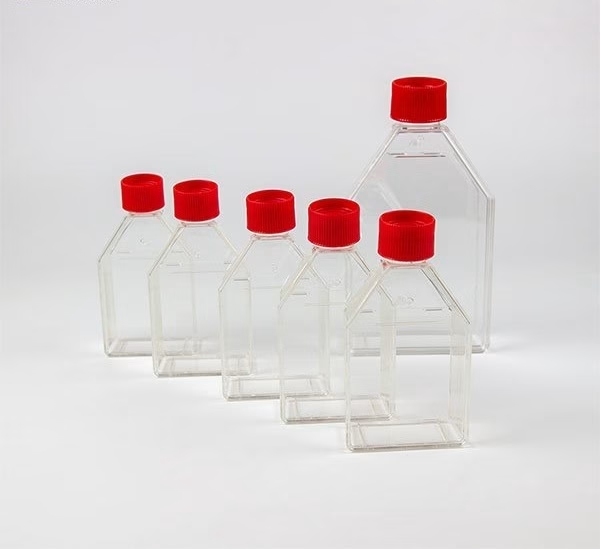
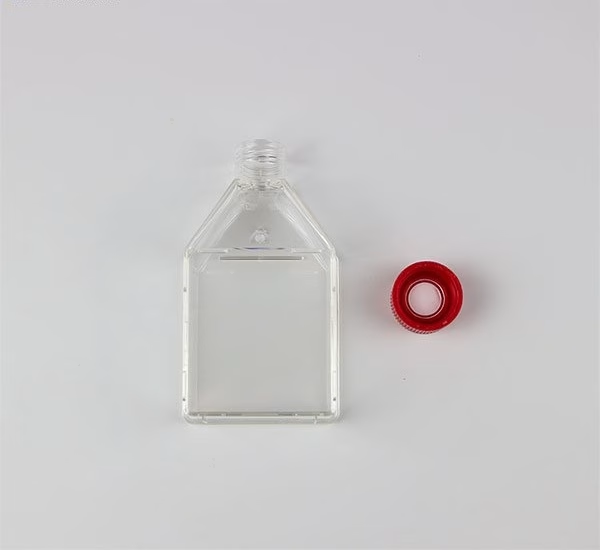
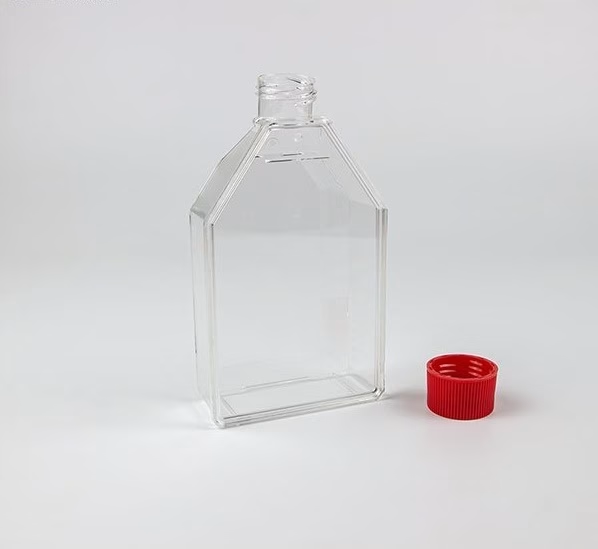
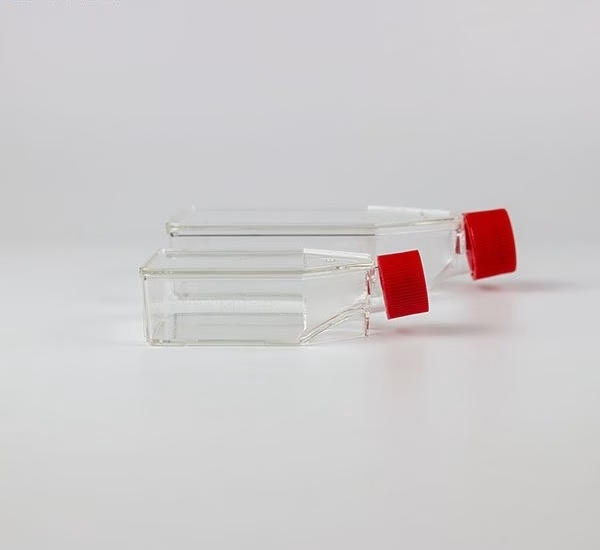
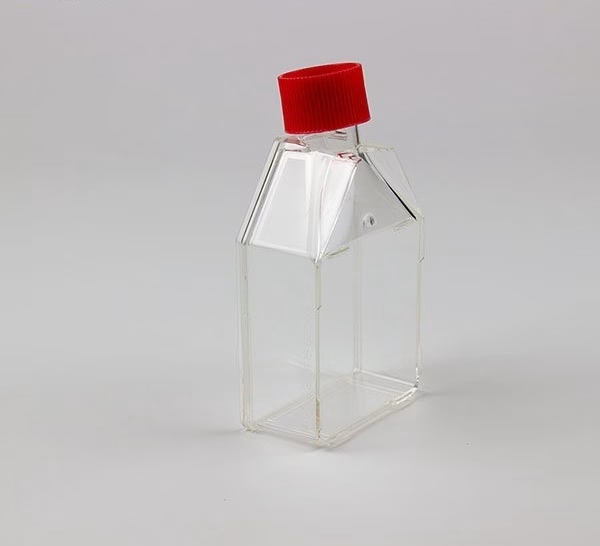




Reviews
There are no reviews yet.